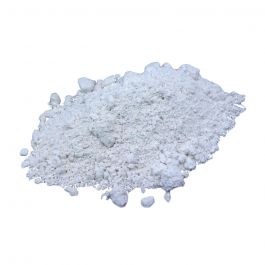- Language
- 🇺🇸
- Joined
- Mar 1, 2024
- Messages
- 338
- Reaction score
- 450
- Points
- 63
el aluminio no lo haría más sospechoso? entonces es obvio que estás ocultando algo. pero yo no lo sé, nunca he enviado drogas por correo antes.
- Language
- 🇬🇧
- Joined
- Jan 19, 2024
- Messages
- 45
- Reaction score
- 30
- Points
- 18
Mucha gente dice que el aluminio ayuda a bloquear los rayos X, pero creo que es un mito.
El plomo ayuda a bloquear los rayos X debido a su densidad 11400kg/m³ pero el aluminio solo tiene 2700kg/m³ asi que creo que es inutil
solo sirve para envolver la droga
El plomo ayuda a bloquear los rayos X debido a su densidad 11400kg/m³ pero el aluminio solo tiene 2700kg/m³ asi que creo que es inutil
solo sirve para envolver la droga
↑View previous replies…
- Language
- 🇺🇸
- Joined
- Jan 23, 2024
- Messages
- 112
- Reaction score
- 39
- Points
- 28
- Deals
- 12
¡mentira! el papel de aluminio no bloquea los rayos x.
tu droga es un montón de moléculas orgánicas. lo orgánico se ve diferente de lo metálico en los rayos x, y se distingue.
si quieres bloquear los rayos x, debes sumergir tu droga en el envergadura orgánica similar para que parezca algo inocente. pero en este punto me detengo ya que no estoy dispuesto a revelar mis propios métodos de sigilo.
tu droga es un montón de moléculas orgánicas. lo orgánico se ve diferente de lo metálico en los rayos x, y se distingue.
si quieres bloquear los rayos x, debes sumergir tu droga en el envergadura orgánica similar para que parezca algo inocente. pero en este punto me detengo ya que no estoy dispuesto a revelar mis propios métodos de sigilo.
- Language
- 🇺🇸
- Joined
- May 8, 2024
- Messages
- 43
- Reaction score
- 9
- Points
- 8
Theoretically aluminum can shield against electromagnetic waves, also x-ray.
But the thin layers used mostly are not enough.
There are different ways through which a material can block electromagnetic waves.
Scattering and absorption which often happens in high density, but it also works through the conductivity of a metal, and aluminum and copper for example have a good conductivity, and this allows them to absorb energy from the electromagnetic radiation pretty well, because of their free electrons.
But you would need a thick layer of aluminum, the normal foil is not going to do that well-
But the thin layers used mostly are not enough.
There are different ways through which a material can block electromagnetic waves.
Scattering and absorption which often happens in high density, but it also works through the conductivity of a metal, and aluminum and copper for example have a good conductivity, and this allows them to absorb energy from the electromagnetic radiation pretty well, because of their free electrons.
But you would need a thick layer of aluminum, the normal foil is not going to do that well-
- Language
- 🇺🇸
- Joined
- May 8, 2024
- Messages
- 43
- Reaction score
- 9
- Points
- 8
Also the shielding ability of aluminum is better (lot better) at lower frequencies, and thickness would need to be increased a lot to shield effectively against x-rays. Also at such high frequencies like x-ray denser materials with high Z are normally required because they have a higher probability of interacting with high energy electromagnetic waves, but theoretically every conductor can block them t some point, also aluminum, but you need a very thick layer which is not practical.

